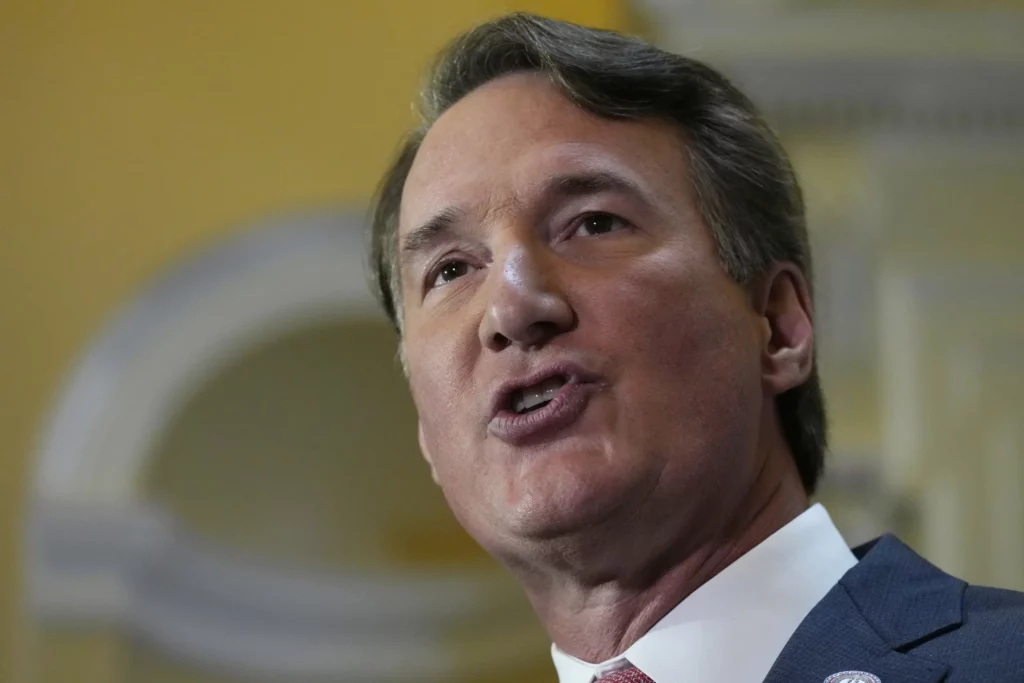A bill that would change the way Virginia regulates high-risk artificial intelligence could hurt the state’s tech-rich economy, according to critics who have been urging Gov. Glenn Youngkin (R-VA) to veto it.
Virginia’s HB 2094, the High-Risk Artificial Intelligence Developer and Deployer Act, would impose transparency requirements, mandate impact assessments, and enable safeguards against algorithmic discrimination.

The state attorney general’s office would be responsible for enforcing the law, which carries civil penalties of up to $10,000 per offense. Those found in violation would have 45 days to correct any problems.
The bill, which was sponsored by Del. Michelle Maldonado, is now with the governor, who has until the end of Monday to either sign or veto it.
A Youngkin spokesperson told the Washington Examiner on Wednesday that the outgoing governor is “still reviewing many of the 900 bills that have been on his desk” and did not indicate which way he might be leaning.
Supporters of the legislation claim it is necessary to prevent bias and ensure fairness, but opponents argue the bill could have a negative impact on the tech industry as a whole, erasing gains Virginia has made. They have also pointed to the costs associated with enforcement.
The bill follows Colorado’s first-in-the-nation AI discrimination law and would require companies to prepare for oversight of AI-driven decision-making beginning July 2026.
“The health of Virginia’s tech economy depends on the growth of emerging technologies like artificial intelligence,” wrote Adam Kovacevich, the founder and CEO of the tech industry coalition Chamber of Progress. “Virginia’s AI sector is already worth an estimated $1.71 billion, and that number is growing every day thanks to the commonwealth’s leading data centers, fintech innovators and research institutions.”
Kovacevich warned that if the state “doesn’t strike the right balance on regulating AI,” it would “risk turning the commonwealth from an AI hub into a ghost town.”
“Right now, a bill on Gov. Glenn Youngkin’s desk threatens to make that ghost town a reality,” he said.
Think tank R Street Institute agrees.
It called the bill a “heavy-handed effort to regulate artificial intelligence systems” and described it as “burdensome and unnecessary,” in a letter last month to the governor.
R Street also claimed the bill would endanger the success of Virginia as a leader in digital innovation, a position the state has maintained “thanks to the light-touch regulatory approach the Commonwealth and the nation as a whole adopted a generation ago to spur the internet and digital revolution.”
“HB 2094 threatens this success,” the letter continues. “The measure essentially builds on the failed regulatory model that the European Union (EU) uses to regulate digital technology and now AI. The EU’s compliance-heavy regulatory regime has decimated competition, investment, and new business formation across the continent, leading experts to label Europe ‘the biggest loser’ in the global digital technology race.”
The U.S. Chamber of Commerce has also urged Youngkin to veto the bill, claiming members are “concerned the proper analysis has not been undertaken to determine how this legislation’s liability and impact assessment requirements will impact smaller businesses or whether the proposal conflicts with current Virginia State law.”
Last year, Youngkin signed an executive order that established standards and guidelines for AI. It also created a task force to help develop “guardrails” for responsible use of the technology.
“These standards and guidelines will help provide the necessary guardrails to ensure that AI technology will be safely implemented across all state agencies and departments,” Youngkin wrote. “At the same time, we must utilize these innovative technologies to deliver state services more efficiently and effectively. Therefore, my administration will utilize the $600,000 in proposed funds outlined in my Unleashing Opportunity budget to launch pilots that evaluate the effectiveness of these new standards.”
Maldonado told the Virginia Mercury that while the task force is helpful, it is important for lawmakers to get involved.
ARIZONA SUPREME COURT TO USE AI NEWS REPORTERS TO EXPLAIN RULINGS
“I’m looking for solutions that are sustainable and what makes it sustainable is putting it into legislation, which then tracks to regulatory requirements that don’t expire depending on who’s in office,” she said.
Calls to Maldonado’s office by the Washington Examiner for additional comment were not returned.














